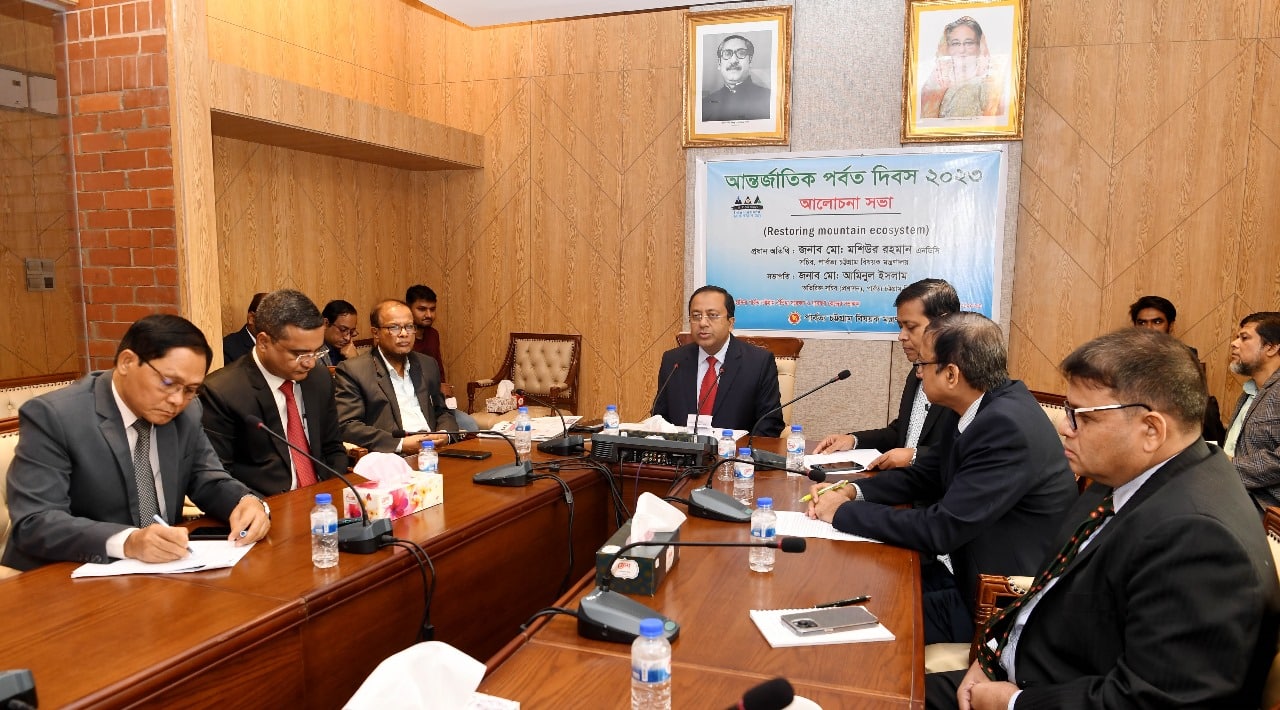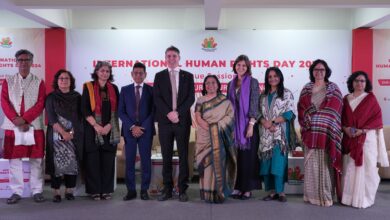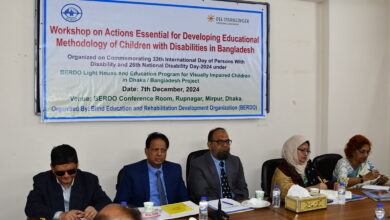International Mountain Day observed
Economic development and income growth of the people of Chittagong Hill Tracts prioritized

PARVEZ BABUL
International Mountain Day observed in Bangladesh today December 11, 2023 as it is observed every year since 2003. Government of Bangladesh observes the Mountain Day with due importance like other countries of the world according to the declaration of the United Nations.
President and Prime Minister of Bangladesh issued separate messages in observance of the International Mountain Day. In his message, President Mohammed Shahabuddin said, “I welcome the initiative of the Ministry of Chittagong Hill Tracts Affairs to celebrate ‘International Mountain Day’ with due dignity like every time.”
Due to the negative effects of global climate change and unplanned land use by humans–unfavorable conditions are being created in mountainous areas worldwide. Besides, due to heavy rains, droughts, storms and destruction of trees, the natural balance is being destroyed in the hilly areas. To deal with this situation, it is important to take various initiatives to protect the environment of the mountainous areas, including raising awareness, the president added.
Sheikh Hasina , Prime Minister of Bangladesh, in her message said, “The Awami League (AL)-led government has continued various development activities with the aim of preserving the mountains and biodiversity of the hilly areas, its sustainable use and reaching equal benefits to all the beneficiaries.”
The greatest Bangalee of all times, Father of the Nation Bangabandhu Sheikh Mujibur Rahman was the first to bring back the backward hilly people who were excluded from the touch of modernity to the mainstream of development and took multifaceted programs to improve the living standards of the hill-dwellers, Sheikh Hasina added.
Ministry of the Chittagong Hill Tracts (CHT) Affairs (MOCHTA) organized a discussion meeting today December 11, 2023 in the capital with the global theme: “Restoring Mountain Ecosystems.”
Discussants at the event pointed out that Mountains are essential for human lives and livelihoods, providing resources such as freshwater, energy, and food.
As the chief guest, Secretary of MOCHTA Md. Moshiur Rahman, NDC said, “We have to see what we can do to save the mountains and find a solution. We have to protect the natural mountains, the environment for our survival. We have guidelines to protect the environment. We need to think more and take effective steps on how to reduce the degradation of the mountains and its surrounding environment.”
All the citizens of the country, including the Ministry of Chittagong Hill Tracts Affairs, have a positive mindset to protect the hills of the country. Everything should be done in coordination with everyone. We have scientific evidence and data on disasters that destroy nature and environment. But it is not enough to have this scientific evidence and data, they have to be integrated and translated into policy. It is not just to say, but to implement, Moshiur Rahman added.
The experts at the discussion meeting observed that the mountains are the great source of natural beauty. The importance of mountains in human life is immense. More than a quarter of the Earth’s total land area, about 27 percent is covered by extensive mountain. 22 percent of the world’s population are directly benefiting from the mountains. Most of the people of the world have been enjoying various benefits from the resources extracted from the mountains for ages.
The worst impacts of human-induced climate change on mountains are often hampering the achievement of sustainable development goals (SDGs). Due to which people have to constantly make efforts to deal with climate risks. Climate change is threatening water flows and rapidly rising temperatures are forcing mountain species and the people who depend on these ecosystems to move from one place to another.
The Ministry shared their success and said that under the CHT development projects undertaken by the government, conservation of the forests and to protect, development of watershed management, provision of alternative employment for residents dependent on forests, especially women’s empowerment programs have been implemented. The programs are being considered as a breakthrough initiatives for the socio-economic development and income generation for the people of the CHT.
To develop tourism industry, the physical infrastructures of four tourist spots in three hill districts have been developed by the Ministry. The three hill districts are one of the top tourist destinations in the country. And many other projects are being implemented that have been made possible due to the Mountain Peace Agreement in1997.
Ishrat Parveen Ema, Deputy Programme Manager of Manusher Jonno Foundation said, “Manusher Jonno Foundation works in the three hill districts of the CHT : Bandarban, Khagrachori, and Rangamati. We work for climate resilience livelihood and women empowerment. We work with the adolescent girls for their life skill training to grow leadership qualities among them. We also address women’s role in agriculture, livestock, among other issues. Recently, we are working through advocacy to ensure marriage registration in the CHT.”
Pradeep Kumar, additional secretary of the Ministry delivered welcome speech in the meeting. Representatives from the UNDP, Helen Keller International, FAO, Khagrachari District Council also spoke at the event among others. Md. Aminul Islam, additional secretary of MOCHTA presided over the meeting.
Meanwhile, International Centre for Integrated Mountain Development (ICIMOD), a Nepal-based intergovernmental knowledge and learning centre working on behalf of the people of the Hindu Kush Himalaya (HKH). Dr. Pema Gyamtsho, Director General of ICIMOD issued a message on International Mountain Day.
Pema mentioned in his message that Mountains are famously cradles of biodiversity – their steep slopes giving rise to a dizzying variety of life forms. They have grown increasingly crucial as refuges for nature: covering just one quarter of the planet, they hold 85 percent of Earth’s amphibians, birds, and mammals. This wealth of nature is reflected in the fact that of UNESCO’s 738 global biosphere reserves, significantly more than half are mountainous. Nepal has just below 24 percent of its land under protection. China is just over halfway to the target, with 16 percent. Pakistan is at 12 percent; India at eight percent; Myanmar at seven percent; Bangladesh at five percent, and Afghanistan at four percent.
Pema said, “Recognition that nature is one of the biggest solutions to the crisis we now face growing – at the public, political, and diplomatic level. The United Nations declared 2021–2030 as the Decade on Ecosystem Restoration and last year, under the Kunming Montreal Global Biodiversity Framework, more than 100 governments worldwide pledged to set aside 30 percent of land and sea for nature by 2030 – including all the countries of the HKH. And for the first time this year 2023, nature was put at the centre of discussions at the United Nations global climate conference, COP 28 of the UNFCCC.”
ICIMOD will work with the members, multilateral development banks and others to urgently advance. Because it has never been more evident that to prevent Earth systems from completely collapsing, we must give nature a home, Pema Gyamtsho pledged.





